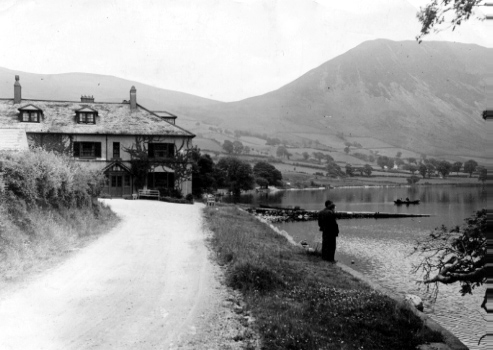|
In the Victorian era they were sold for
a king's ransom. These are the rare black freshwater pearls that poachers
used to keep a keen eye out for along stretches of the Rivers Ehen and
Irt in West Cumbria.
Now in the 21st century parts of the River Ehen valley have been turned
into a Site of Special Scientific Interest (SSSI).
The new SSSI status is to help protect the freshwater mussels from an
alleged threat from low water levels. In the past the mussels produced
a freshwater pearl for the Queen.Each mussel can live to be 120 years
old.
It is illegal to kill or damage the freshwater mussels. The even rarer
black pearls that grew in mussels on the River Irt are thought to have
led to the mussels being reduced in the Cumbrian River Irt.
Dr Parkers history of the Gosforth District states: "The locally
famous pearls of the Irt appear to have been known to the Romans. Tacitus
and Bede mention British pearls andCamden saysof the Irt "In this
brook the shell fish eagerky sucking in the dew, conceive and bring forth
pearls, or to use the poets words 'shell berries'. These the inhabitants
gather up at low water and jewels buy them." About 1695 a company
was formed to search for pearls in the Irt and Thomas Patrickson of HowHall
Ennerdale is said to have employed people to gather £800 worth The
pearls are still to be found by careful searchers.''
A consequence of the moves to hypothetically help the mussels is that
United Utilities are in 2017 spending £300
million on a new aquaduct to bring Thirlmere water to supply all of West
Cumbria.
A member of the Egremont Anglers Association said: "The Ehen could
even become a special European Sensitive Waters area.'' He said the level
of fish stocks on the River Ehen "were poor and any such conservation
protection such as the SSSI was to be welcomed''.
In 2003 the Environment Agency stated
they planned to assist the mussels to reproduce by moving examples from
site to site...Whether thos also spreads viruses or infections one wonders..The
Agency stated :Enjoying one's own space may suit some, but for pearl mussels
it is having a devastating effect. For this rare species, living together
is essential to successful reproduction, as sperm released into the water
by males is filtered by the gaggles of females that share their living
space.
However, due to a number of reasons, pearl
mussel populations in English rivers have become fragmented. Many now
live near-solitary lives on empty beds, their sex life a long-distant
memory. As a result, while the species continues to thrive in Scotland
and Ireland, the numbers of English and Welsh pearl mussels is dwindling
alarmingly.
More about Ennerdale
|
|

